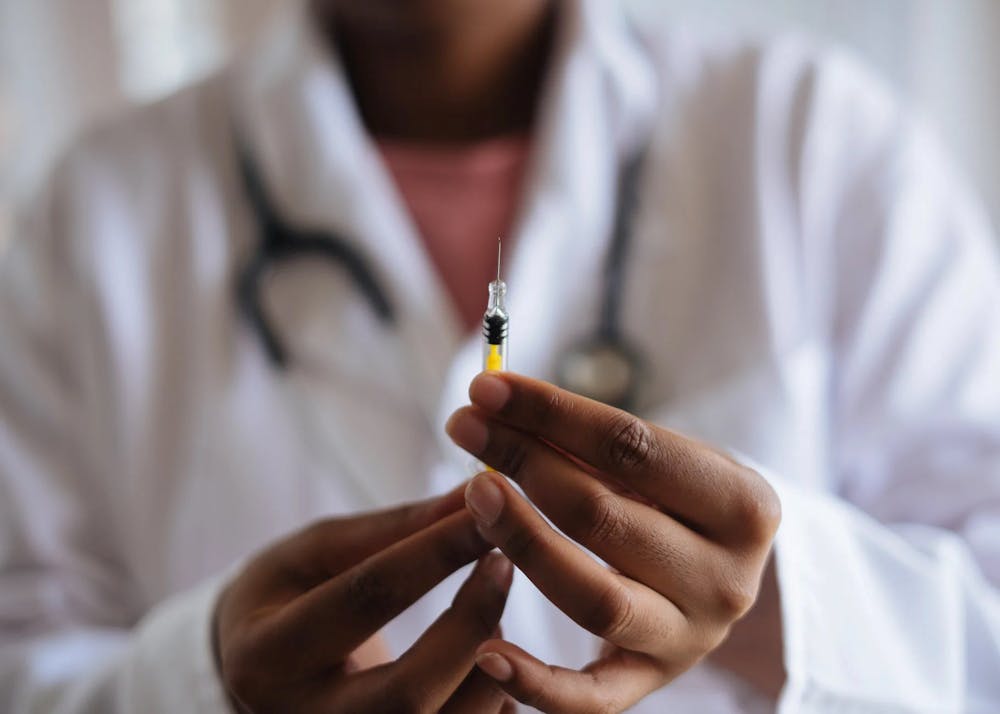As precautionary measures taken to prevent the spread of COVID-19 continue, one question is on all of our minds: When is a safe, effective vaccine going to be developed?
The Duke-Margolis Center for Health Policy hosted a webinar Thursday afternoon led by the Center’s Director Mark McClellan to discuss questions regarding vaccine development.
The session began with a “fireside chat” about the Food and Drug Administration’s role in ensuring the safety of potential coronavirus vaccines. This panel featured members of the FDA who are overseeing the U.S. effort to develop a vaccine.
In delineating the process behind vaccine development, Peter Marks, director of the Center for Biologics Evaluation and Research at the FDA, spoke to the need for transparency.
“We have to make sure that we have a safe and effective vaccine that people will trust enough to take,” Marks said.
Marks further asserted that participant safety is still a primary concern during the trials for the vaccine. Current trials involve more than 30,000 participants, with many of subjects randomly selected and others chosen in order to represent populations that are more at risk. For example, minorities and the elderly were intentionally represented in the trials, as they are among the populations that are disproportionately affected by the coronavirus in the United States.
Once vaccines and placebos are administered to the population of the study, the effects are recorded over time by researchers. The researchers recording the data are blinded, with no idea which group is the control. Marks mentioned that it is important to note that the vaccine is only being given to healthy individuals to reduce confounding effects.
Once the data is gathered, a committee will analyze it to determine whether the vaccine is ready. According to Marks, a vaccine will be considered successful when it is 50% effective. Though it may sound like a low threshold, the annual flu vaccine is usually approved at about 50% effectiveness as well. Marks said that this minimum was set before the trials even began, with the intent of accelerating the development of the vaccine.
Marks stated that continued monitoring on participants after the trial is completed assumes top priority. A majority of side effects will occur within six weeks of the vaccine being administered, so subjects will be closely observed within this window. Observation to some extent will continue beyond this window, in order to ensure there are no lingering effects.
Another panelist, former FDA Commissioner Peggy Hamburg, spoke about how crucial it is for the public to place trust in the vaccine. Without widespread acceptance, the vaccine will not be effective.
“If people don’t trust it, it won’t be the tool we’re all counting on,” Hamburg said.
Following that discussion, there was a session featuring experts in health policy across the country, such as Grace Lee, professor of pediatrics at Stanford University; Carlos del Rio, distinguished professor of medicine in the division of infectious diseases at Emory University School of Medicine; and Steven Anderson, director of the office of biostatistics and epidemiology at CBER. The experts discussed the unusual circumstances present in the vaccine development, including modifications to the vaccine development process to speed it up.
Get The Chronicle straight to your inbox
Signup for our weekly newsletter. Cancel at any time.

